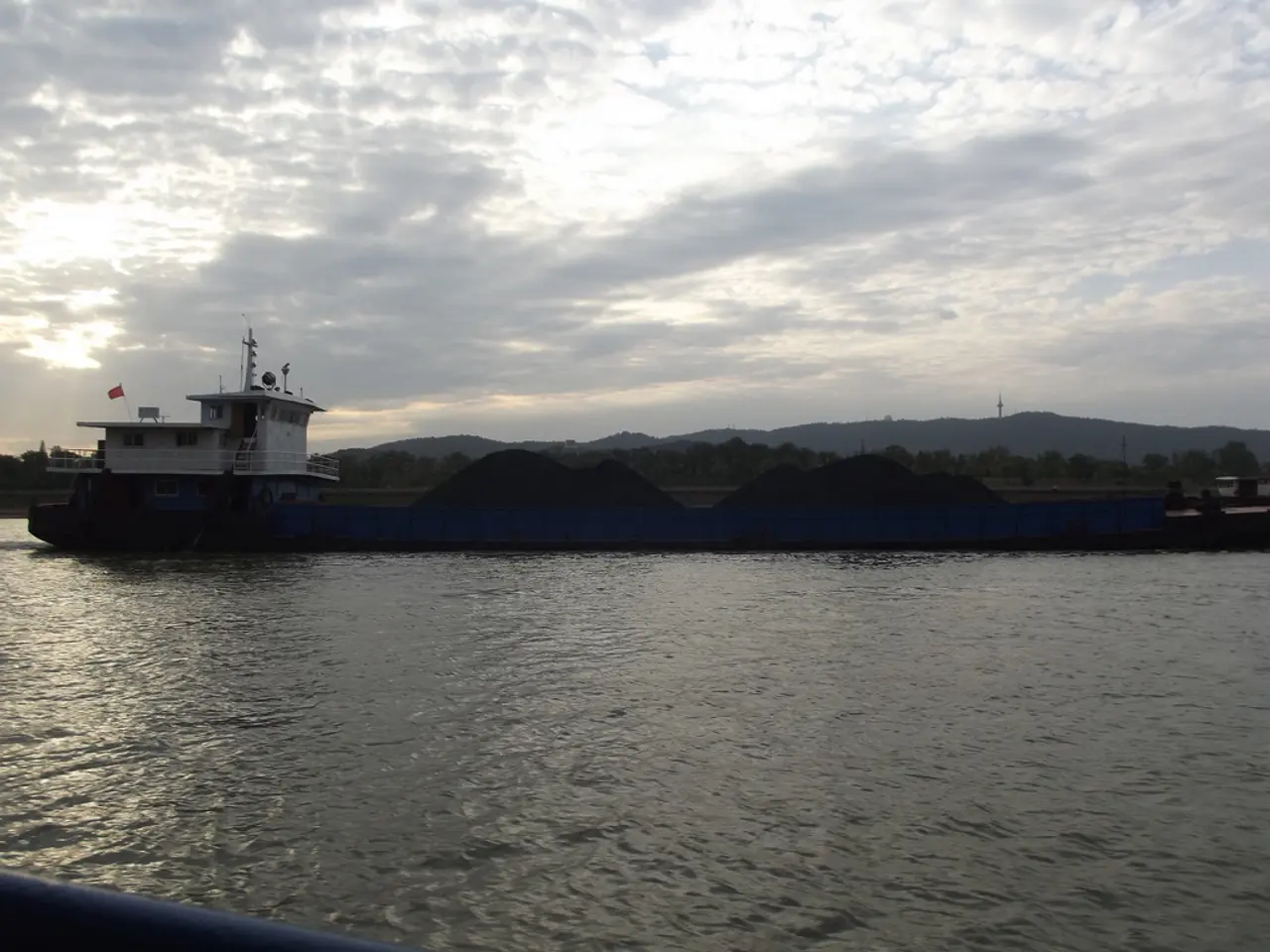Hydrogen Project in Bremen Temporarily Halts Due to Market Challenges
Hydrogen venture in Bremen temporarily suspended by EWE - Project on hydrogen development in Bremen halted by EWE.
Let's dive into the reasons behind EWE's decision to temporarily halt the construction of its large-scale hydrogen facility in Bremen. This project was part of the "Clean Hydrogen Coastline" program, according to reports from the "Nordwest-Zeitung."
EWE is now considering alternative options and exploring different financing models to get the project back on track. This hydrogen facility was designed to support climate-neutral steel production in Bremen and other efforts related to the decarbonization of industry.
Green hydrogen remains crucial for a secure, sustainable energy future, emphasized EWE, stressing its importance in tackling climate change.
Impact of Arcelor's Decision
EWE's decision might be a consequence of ArcelorMittal's decision not to convert its Bremen and Eisenhüttenstadt plants to green hydrogen production. This move underscores the significant hurdles in industrial decarbonization, according to EWE.
Moving Forward
Despite EWE's decision, three other sub-projects of the program are reportedly proceeding as planned. These include a 320-megawatt hydrogen production facility in Emden, a large-scale hydrogen storage facility in Huntorf, and the development of pipeline infrastructure. A smaller electrolysis project in Bremen with a capacity of 10 megawatts is already under construction. Hydrogen produced here will be integrated into existing processes or supplied to third parties.
Stefan Dohler, EWE's CEO, called for reliable political framework conditions for the hydrogen economy. "The transformation of industry will only succeed if hydrogen is not only politically desired but also economically feasible," said Dohler. "Germany and Europe must deliver: on electricity prices, on promotion, on infrastructure. Only then will the trust be created that is needed for billion-euro investments."
The current market conditions for hydrogen projects in Germany are challenging, with significant obstacles such as reduced funding, regulatory uncertainties, and strategic shifts creating a cautious investment climate. The inferred implications of the EWE halt in Bremen highlight these challenges, demonstrating how financial and strategic uncertainties impact project continuity during this industry transition. Despite these obstacles, the future of hydrogen remains a critical component of a sustainable, decarbonized energy supply.
[1] German Federal Ministry for Economic Affairs and Climate Action (BMWK), Hydrogen Strategy, 2020. [Online]. Available: https://www.bmwk.de/Redaktion/DE/Publikationen/Inhalte/33866108/File/4523f3eb-8341-4f4a-9a28-d257f5f1d6d2/Hydrogenstrategy-finalweb.pdf
[2] European Commission, Strategy for clean hydrogen in Europe, 2020. [Online]. Available: https://ec.europa.eu/docsroom/documents/29531/attachments/1/translations/en/renditions/native
[3] ClimateWorks Australia, Hydrogen Insights: The Race to Clean Energy, No. 8, 2021. [Online]. Available: https://climateworksaustralia.org.au/resources/all-resources/hydrogen-insights-8/
[4] Forbes, Germany Struggles To Adopt Hydrogen, With Little Progress Reported On The Biggest Projects, 2022. [Online]. Available: https://www.forbes.com/sites/bernardesuppan/2022/04/14/germany-struggles-to-adopt-hydrogenwith-little-progress-reported-on-the-biggest-projects/?sh=7c3ea99c66cd
[5] Federal Ministry of Transport and Digital Infrastructure (BMVI), Import and National Hydrogen Strategy, 2023. [Online]. Available: https://www.bmvi.de/SharedDocs/EN/Artikel/DE/Strategie/Import-und-Nationale-Wasserstoffstrategie.html
- The temporary halt in EWE's large-scale hydrogen facility construction echoes the challenges in the hydrogen project market, as indicated by reduced funding and regulatory uncertainties.
- EWE's call for reliable political framework conditions underscores the need for Germany and Europe to address electricity pricing, promotion, and infrastructure development in order to create a sustainable, billion-euro investment climate.
- Science, a key driver in the hydrogen economy, plays a significant role in developing and financing models, and in tackling climate change through renewable energy and environmental science.
- Despite market challenges, the future of hydrogen as a critical component of a sustainable, decarbonized energy supply remains crucial, as evidenced by the ongoing hydrogen projects in Emden, Huntorf, and the smaller project in Bremen.




